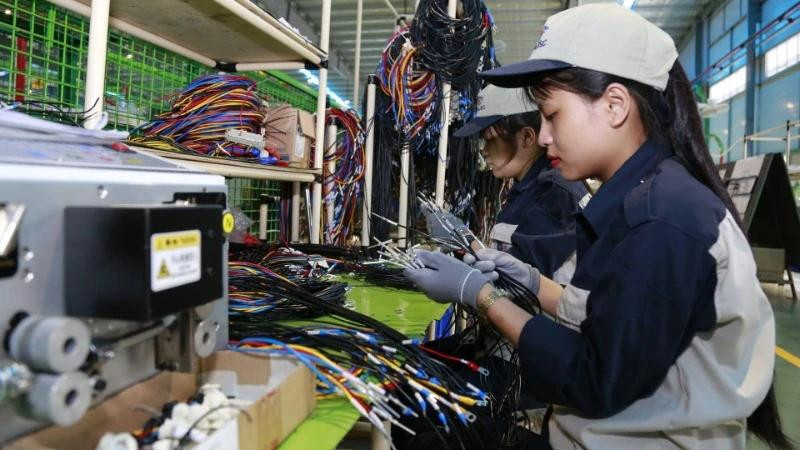Investing in shared laboratories
One of the ambitious targets set out in Resolution 57/NQ-TW is to allocate 2% of GDP to research and development (R&D), with 60% of this funding coming from businesses and society. In the current context, where science and technology enterprises, especially small and medium-sized ones, struggle with financial constraints and infrastructure, shared laboratories offer a crucial solution. Timely investment in national key laboratories for shared use by research institutes, universities, enterprises, and individuals is therefore imperative.
Previously, Vietnam invested in 15 key national laboratories, but their effectiveness has been limited as they were not made openly accessible as originally intended. The root cause lies in the absence of cost norms for leasing or shared usage and the lack of state funding for maintenance. As a result, most of these labs have become obsolete or closed, despite high societal demand. Recently, some universities and research institutes have received state support to build key laboratories, which has strengthened their research capabilities. However, these remain closed systems.
According to Dr Nguyen Quan, former Minister of Science and Technology, the State should invest in new national key laboratories that support priority projects in semiconductors, nuclear energy, the North-South high-speed railway, as well as research in agricultural processing, crop breeding, genetic modification, and healthcare. These investments must come with appropriate management mechanisms to ensure effective utilisation.
Many businesses expect that access to shared equipment will reduce investment costs, foster innovation, and strengthen collaboration. A prime example is Hoa Lac Hi-Tech Park, which aims to encourage and facilitate the efficient use of its infrastructure for training, research, technology development, and innovation. Acting as a bridge for innovation acceleration, the Management Board of Hoa Lac Hi-Tech Park is implementing mechanisms to expand access to research infrastructure and laboratories for internal and external stakeholders, with open laboratories being a key initiative.
Beyond infrastructure, enterprises also face challenges such as a lack of access to technology information, difficulty in identifying suitable technologies, financial constraints for innovation, and insufficient high-level human resources to absorb new technologies. According to Pham Duc Nghiem, Deputy Head of the National Agency for Technology Entrepreneurship and Commercialisation Development (Ministry of Science and Technology), policies must tackle these issues by funding collaborative projects between research institutes and universities rather than supporting each party separately. This allows businesses to leverage experts, scientists, and lab facilities to accelerate the technology transition into production.
From the business side, there is also a desire for the government to create a database of experts in each field, enabling firms to confidently assign them to solve enterprises’ problems. Scientists should also change their mindset by proactively informing the market about their capabilities and research outcomes. Research institutes and universities can establish expert teams or task groups to support business innovation. Once companies see the benefits of such support, they will likely progress to mutually beneficial partnerships.
Supporting development of high-quality human resources
Today’s most pressing issue for private enterprises is the shortage of skilled human resources. Amid rapid market changes, some companies have recognised the need to invest in internal talent and recruit young personnel with digital knowledge to meet new demands. However, for many small and micro-enterprises, acquiring a qualified workforce to generate new technologies or master advanced ones remains out of reach. Experts stress the need for research and training institutions to provide demand-driven, business-oriented education and training.
Another key factor is the need for venture capital funds to support small and medium-sized enterprises (SMEs) in financing innovation and digital transformation projects. Despite having promising technological ideas, many companies lack the capital to implement them. Venture capital can help mitigate risks and catalyse projects, especially in the early stages. Successful models from developed countries such as the US, Israel, and the Republic of Korea demonstrate that with venture capital support, many small firms have achieved major technological breakthroughs, contributing to economic growth.
With such support, businesses will be better equipped to face global challenges and contribute to the sustainable development of the national economy. Enterprises are eagerly awaiting breakthrough policies to be concretised, so they can access the resources needed to implement their strategic projects.
















